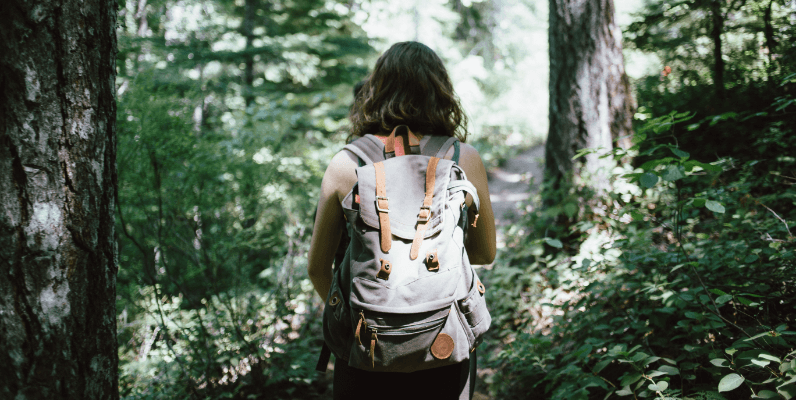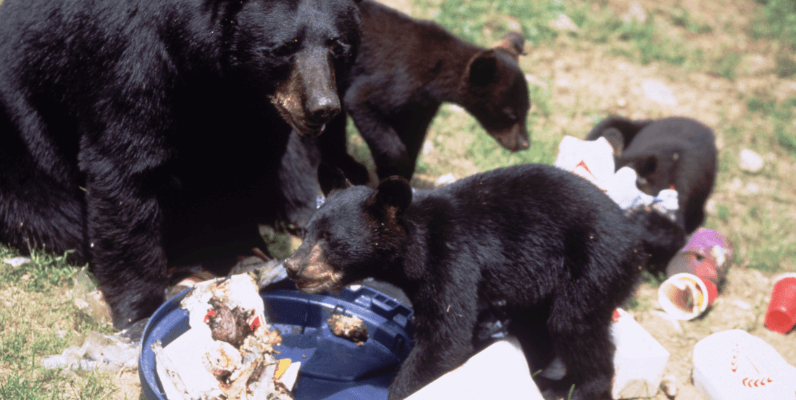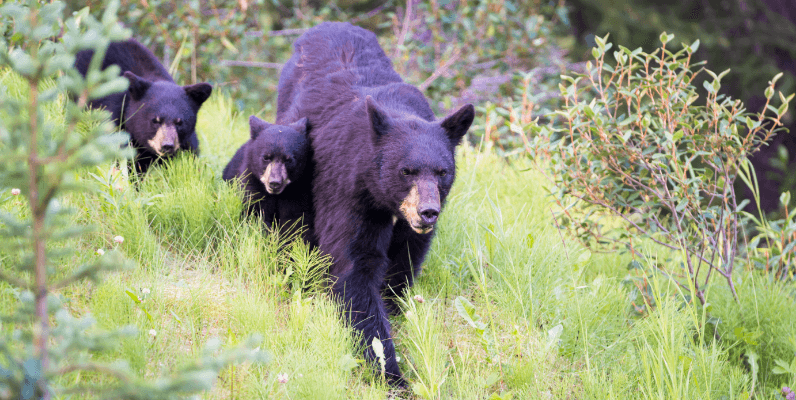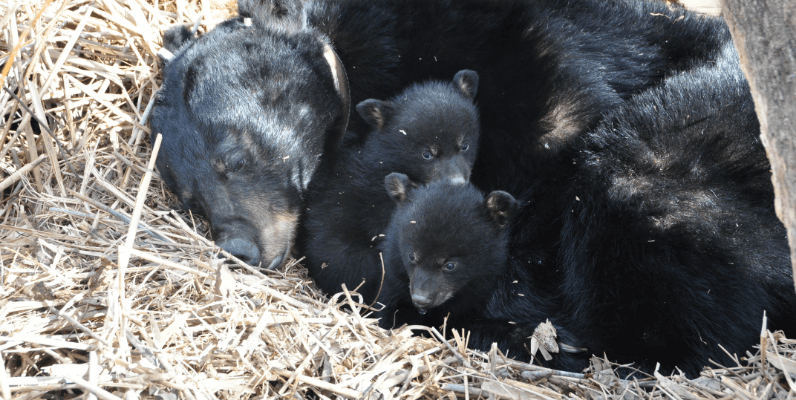When camping, birding, hiking, hunting or fishing in areas frequented by black bears, it is important to follow common-sense safety tips to avoid attracting black bears. This is the best way to prevent black bears from becoming a nuisance and to ensure an enjoyable outdoor experience.
The mere presence of a black bear is not considered a problem. In general, bears tend to be wary of people. However, black bears learn very quickly and bears that are fed intentionally or unintentionally by carelessly leaving out food or garbage while camping, hiking or fishing will learn to associate people with food.
Once black bears learn of an easily accessible food source, like a cooler at a campground, they may lose their wariness of people and return to a location in search of more available food sources. These bears can become a nuisance or aggressive and may have to be trapped and relocated or destroyed.
For more on staying safe in bear country, see Bear Encounters.

Remember: Never feed bears!
It’s illegal in New Jersey, and it’s dangerous. Anyone feeding bears could face a penalty of up to $1,000 for each offense.
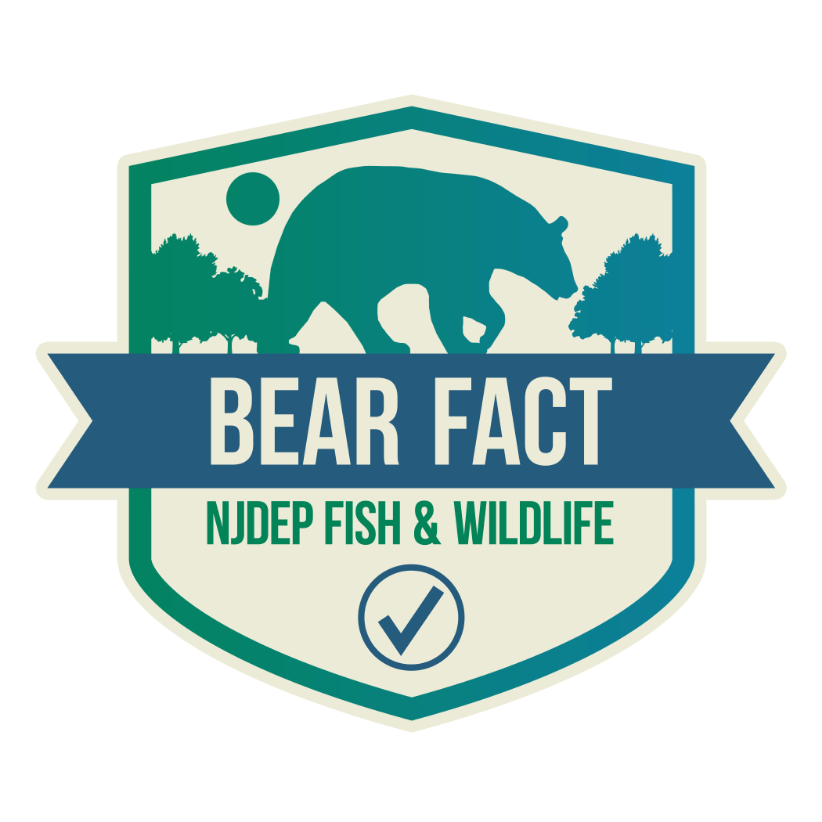
Bear Facts for Outdoor Enthusiasts
Facts for Camping
- It is easier to chase away bears from a campsite before they obtain food. Keep a clean campsite!
- Keep a clean campsite. Food and all items that come in contact with food carry odors that appeal to a bear’s acute sense of smell.
- Do not eat or cook in or near your tent. Never store food items or scented toiletries, such as chewing gum, soap, deodorant or toothpaste in tents, sleeping bags or backpacks.
- Avoid making food garbage by cooking only as much as you will eat at a meal.
- Clean grills and all utensils thoroughly. Never put food or food residue into campfires or fire pits.
- Place garbage in airtight containers or bear-resistant dumpsters. Do not burn garbage or bury it. Bears will dig it up.
- Keep your dog on a leash and remove leftovers after your dog has finished eating.
- Never attempt to feed or approach a bear. It can be dangerous.
- Immediately report all bear damage or nuisance incidents to your camp office, local police or NJDEP’s Fish and Wildlife at 1-877-WARN-DEP (1-877-927-6337).
Facts for Hiking and Fishing
- Let friends or family members know where you plan to be and when you plan to return.
- Hike during daylight hours and stay on the trail. Look for bear signs such as tracks, scat and claw marks.
- Alert bears to your presence with normal trail noise, which should prompt them to leave before you ever see them.
- Use caution in areas where bears are likely to venture, such as berry patches.
- Avoid hiking with pets. If you choose to bring your dog, make sure it is leashed at all times.
- Stay in a group and keep children close when hiking with others.
- Never leave fish entrails on shorelines of lakes, ponds or streams. Sink entrails in deep water.
- If you see a bear, make it aware of your presence and use common sense. Never approach the animal; observe it only from a distance. Clapping, talking, singing or making other noise lets the bear know you are nearby.
- Remain standing, avoid direct eye contact, back up slowly and speak in a calm, assertive voice if you encounter a bear at close range. Do not run.
 Official Site of The State of New Jersey
Official Site of The State of New Jersey


